Fundamentals of Marketing | Marketing Basics 101
Marketing encompasses the strategies and tactics brands use to promote their products and services to consumers. Everything from market research to writing ad copy falls within the realm of marketing.
At first glance, marketing even a single product or service can seem like an enormous challenge. You understand the value of your offering – but how do you show it to consumers? And how can you ensure they actually pay attention to your message? Creating a successful marketing strategy is all about getting to know your audience, analyzing consumer behavior and acting on it appropriately to meet your marketing objectives.
But before we dive into things, let’s start with some basic marketing fundamentals. Understanding these fundamentals will help you create a modern marketing framework, whether you’re focusing on content marketing, email marketing, social media marketing, or more traditional advertising.
The marketing fundamentals we’ll cover in this article are:
- Product.
- Price.
- Promotion.
- Place.
- People.
- Process.
- Physical Evidence.
By mastering these foundational elements, a marketing manager or product marketer can develop effective marketing campaigns and shape the marketing funnel that guides potential customers from discovery all the way through purchase.
A Visual Guide to the Fundamentals of Marketing
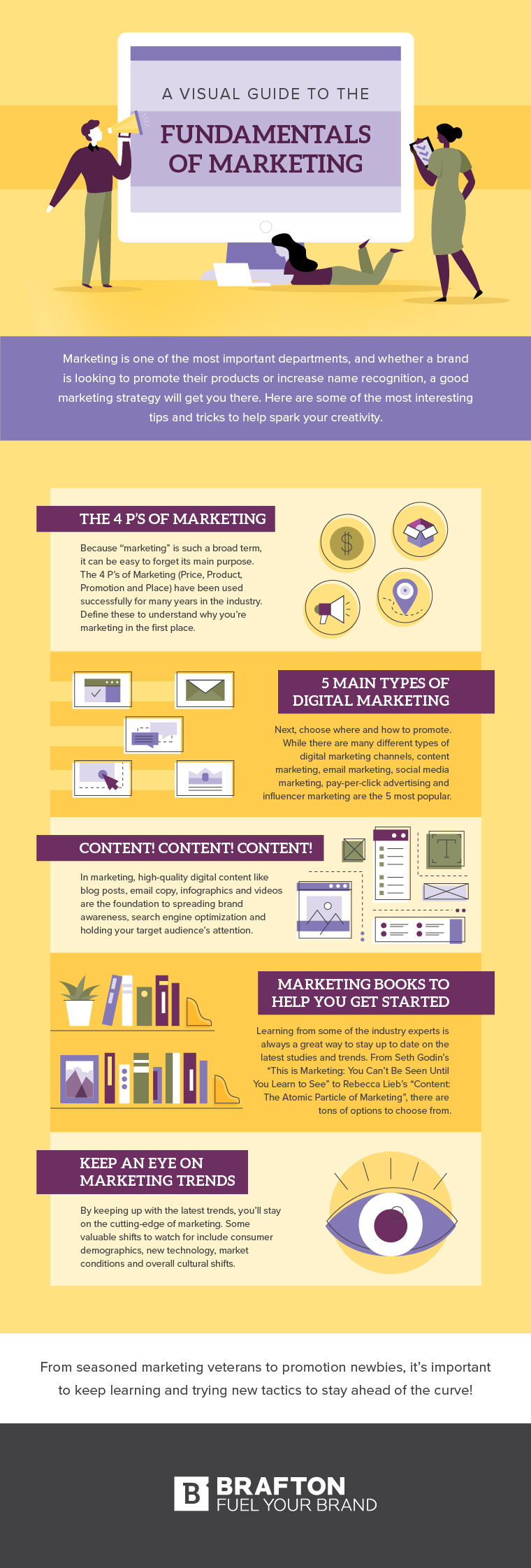
Basic Marketing Fundamentals: The 7 Ps of Marketing
In the late 20th century, marketing thought leaders developed the concept of the “Marketing Mix,” a set of concepts and tools that help companies achieve their objectives within a market. At the core of this model are the four Ps, which have since evolved. This expanded marketing mix integrates inbound marketing, outbound marketing, influencer marketing, and display advertising in ways that align with integrated marketing communications efforts.
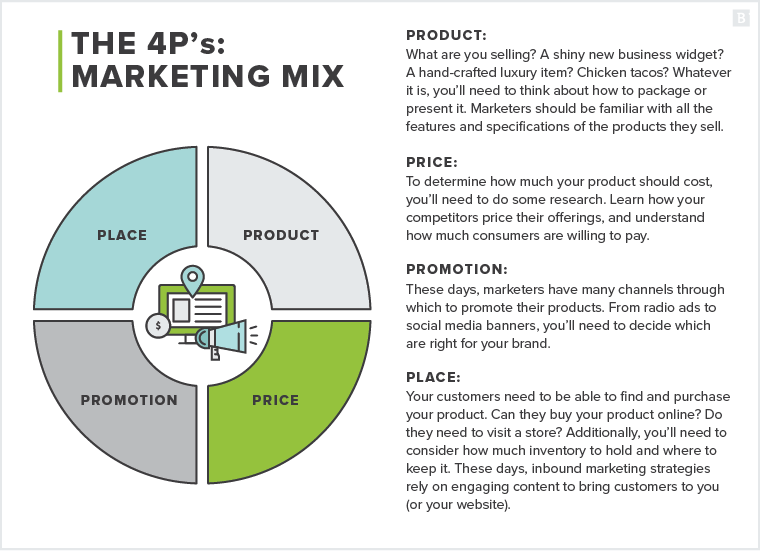
- Product: What are you selling? A shiny new business widget? A hand-crafted luxury item? Chicken tacos? Whatever it is, you’ll need to think about how to package or present it. Marketers should be familiar with all the features and specifications of the products they sell, especially when using tools for startups to optimize their strategies. A clear understanding of the product is also crucial for crafting effective marketing strategies that resonate with your target market.
- Price: To determine how much your product should cost, you’ll need to do some research. Learn how your competitors price their offerings, and understand how much consumers are willing to pay. This aspect of market research is critical to producing a sustainable marketing program that satisfies both company and customer needs.
- Promotion: These days, marketers have many channels through which to promote their products. From radio ads to social media marketing, you’ll need to decide which is right for your brand. For instance, businesses seeking expert guidance often turn to a reputable marketing agency to effectively communicate their brand value through well-crafted messaging and strategic positioning. When considering the best marketing channels for your promotions, think about using online marketing platforms like email marketing, content marketing, or influencer marketing to expand your brand’s reach.
- Place: Your customers need to be able to find and purchase your product. Can they buy your product online? Do they need to visit a store? Additionally, you’ll need to consider how much inventory to hold and where to keep it. These days, inbound marketing strategies rely on engaging content to bring customers to you (or your website). By aligning place with a broader digital marketing strategy, a business can ensure a seamless customer experience.
- People: Optimal customer service is going to get you return customers and referrals, both of which can ultimately convert sales. Having a strong team for marketing communication is a great way to showcase your strong brand, solve problems on the fly, and connect with your customers so they continue to come back for more. In modern marketing, the “people” factor is also critical for building relationships across potential customers’ journeys.
- Process: Creating and promoting a valuable product is essential, but the delivery process is almost just as critical for ensuring your competitive advantage. Your delivery process needs to have efficiency and reliability in mind, both from the perspective of your team and customers. Embracing marketing automation can streamline this process, leading to more consistent effective marketing campaigns and a smoother overall marketing effort.
- Physical Evidence: We work from a digital ecosystem, which means that having a physical store or office outside of your home isn’t as common as it used to be. But having physical evidence of your brand is key. In this case, it could be your website, social media marketing presence or email newsletters sent using email newsletter software. Physical evidence can also include branding and packages related to your product or service. Ensuring that your branding is consistent across all touchpoints helps reinforce a strong brand identity.
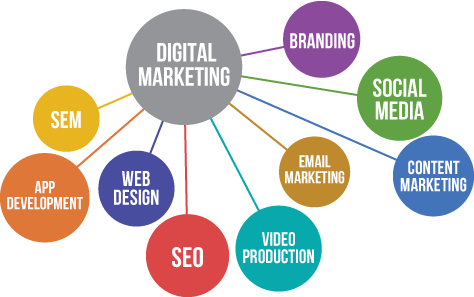
Staying Up-to-Date With the Latest Marketing Trends
A good marketer never stops learning.
Though basic marketing fundamentals may remain steady over time, the specific strategies businesses deploy are affected by a number of factors, such as:
- Changing consumer demographics: Younger generations of people may respond to different appeals, compared with older generations. Customer opinions can greatly influence your content strategy and overall marketing goal.
- Emerging technology: Mobile devices, voice search, and other developments offer new ways for marketers to reach their customers. These new technologies can also support advanced marketing research and marketing metrics collection.
- Fluctuating market conditions: The global economy is in constant flux; what was affordable to consumers yesterday may be out of reach tomorrow. A good marketing plan should adapt to these changes.
- Cultural shifts: Political and social movements shape the way consumers view companies and their offerings. Monitoring such shifts can help you plan more relevant and effective marketing strategies.
How do you forecast these changes? They can shift gradually over long periods of time, especially in the case of technology adoption. You can’t just put a finger to the wind and determine what the next trend will be.
That’s when you turn to expert advice. Blogs are a great place to start. Those of us embedded in the world of marketing every day share our experiences, analyze reports, and make educated predictions about the future of traditional marketing and online marketing.
Subscribe to
The Content Marketer
Get weekly insights, advice and opinions about all things digital marketing.
Thanks for subscribing! Keep an eye out for a Welcome email from us shortly. If you don’t see it come through, check your spam folder and mark the email as “not spam.”
Further Reading: The Best Marketing Books To Have on Your Shelf
A steady diet of books and articles can also keep you informed and up to date on the latest marketing trends. The following books serve as a great foundation for your knowledge base:
This is Marketing: You Can’t Be Seen Until You Learn to See
By Seth Godin
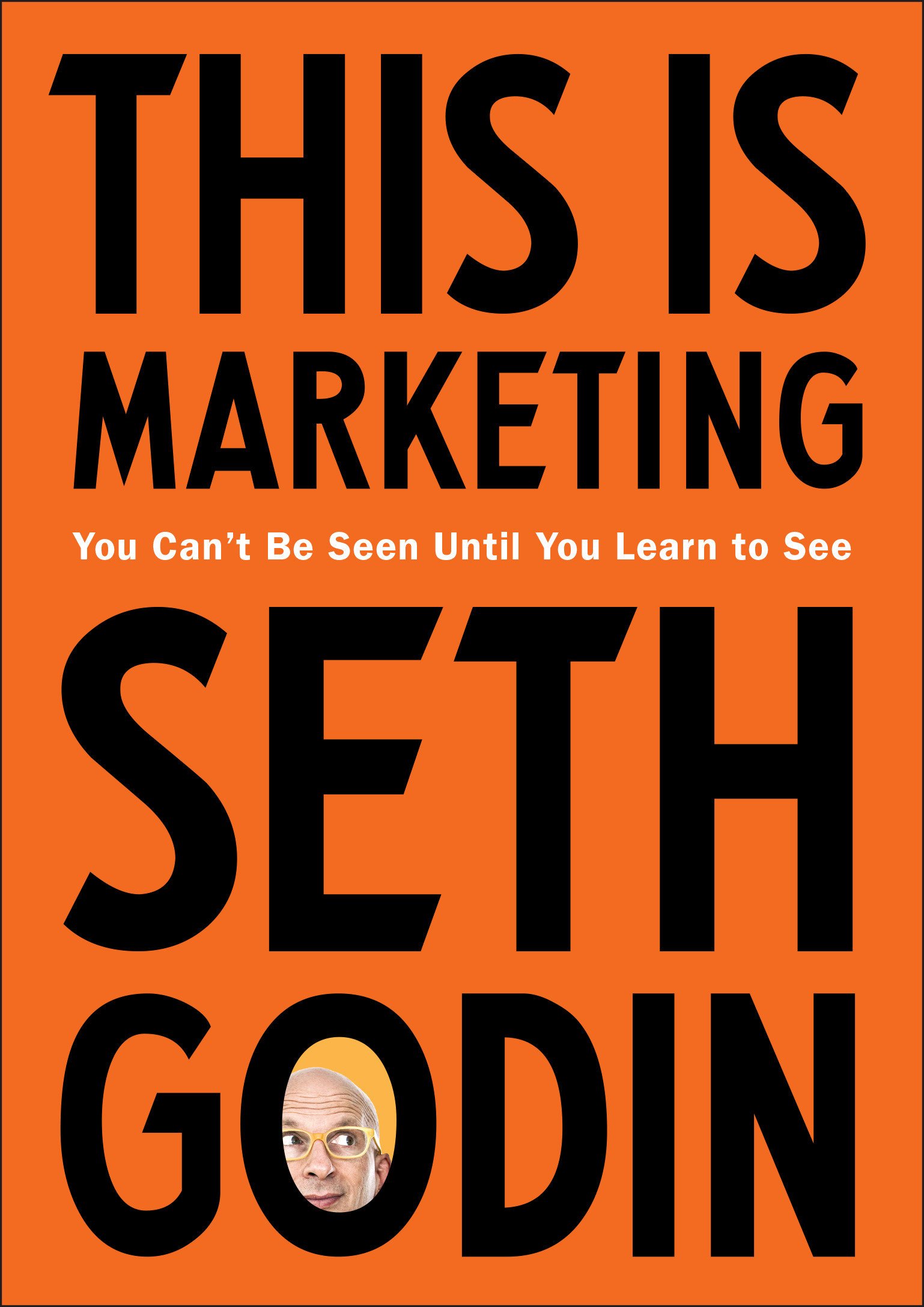
If you’re just getting into marketing, know that Seth Godin is a name you’ll see a lot. His website, online courses, and lectures are hugely popular. In this book, Godin shares his wisdom on digital marketing and teaches lessons on how to build great brands.
Notable quote: “Some dog owners want gluten-free food, loaded with high-value placebos. But let’s not get confused about who all this innovation is for. It’s not for the dogs. It’s for us.”
Good to Great: Why Some Companies Make the Leap and Others Don’t
By Jim Collins
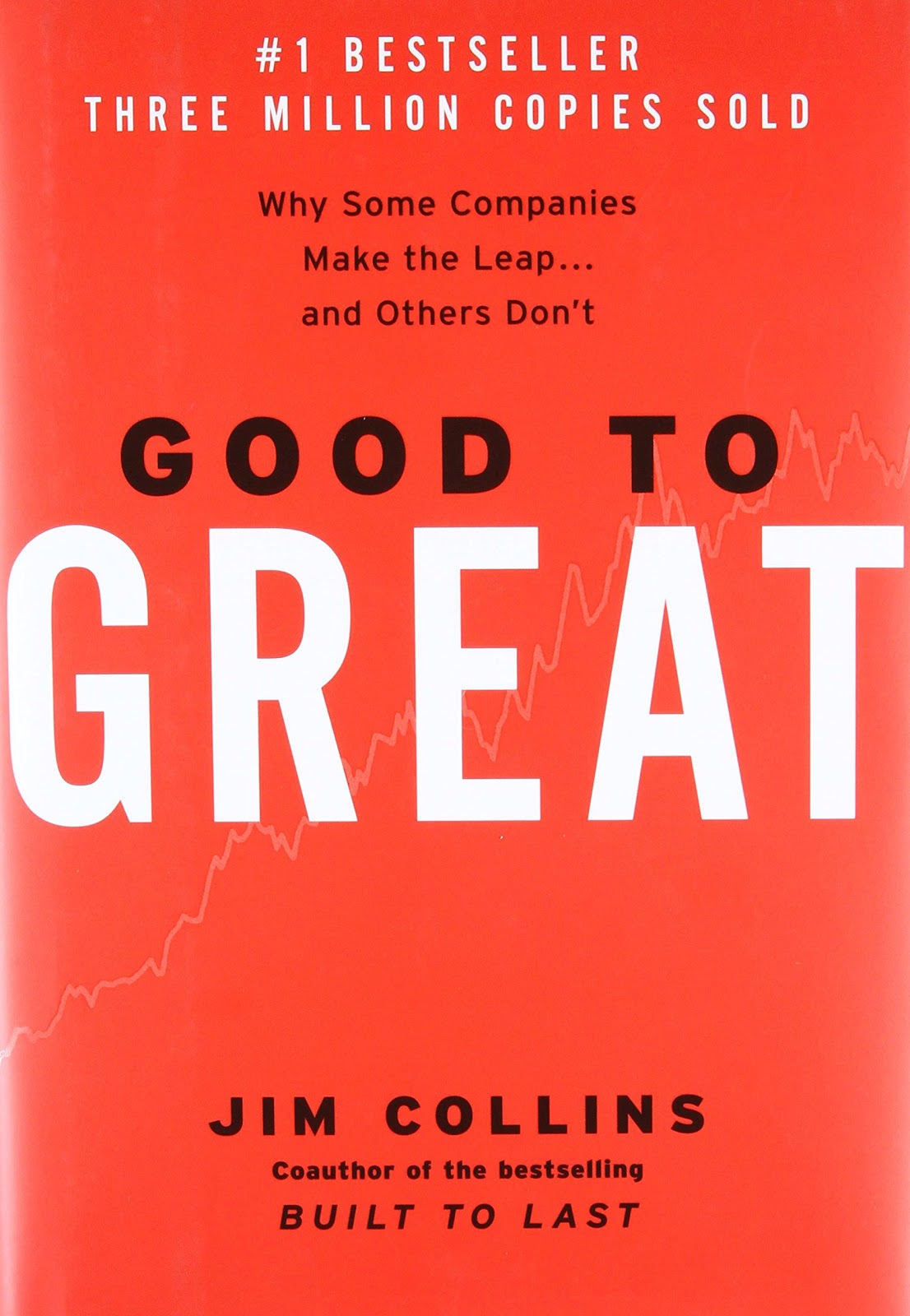
Though published in 2001, Jim Collins’ best-selling book on what makes companies great is still relevant today. The insights found in this book are drawn from 28 in-depth analyses of companies that either became great or succumbed to mediocrity.
Notable quote: “The good-to-great companies made a habit of putting their best people on their best opportunities, not their biggest problems. The comparison companies had a penchant for doing just the opposite, failing to grasp the fact that managing your problems can only make you good, whereas building your opportunities is the only way to become great.”
Building a StoryBrand: Clarify Your Message So Customers Will Listen
By Donald Miller

Effective marketing appeals to customers the way a great story appeals to an audience. Donald Miller’s book takes storytelling elements and applies them to the world of business.
Notable quote: “Brands that help customers avoid some kind of negativity in life (and let their customers know what that negativity is) engage customers for the same reason good stories captivate an audience: they define what’s at stake.”
Content: The Atomic Particle of Marketing
By Rebecca Lieb

Strategic advisor Rebecca Lieb describes how content has evolved to be the most important aspect of a marketing strategy. This book walks readers through the evolution of new media and how it’s shaped how marketers connect with consumers today.
Notable quote: “The culture of content is arising not just because brands are publishers, but because employees are publishers, too. Some will shrug this off as noise rather than signal, but the proliferation of channels, platforms and devices is further enabling employees to speak on behalf of the brand.”
Now that you have more knowledge about the basics of marketing, consider learning more about how to craft a winning blog post or how to connect your marketing strategy to your sales goals.
Marketers must be comfortable with a trial-and-error approach to their work, but the more you learn and study the greats, the quicker you’ll see success. Good luck!
Updated: April 2025

Post Comment